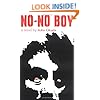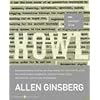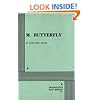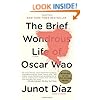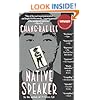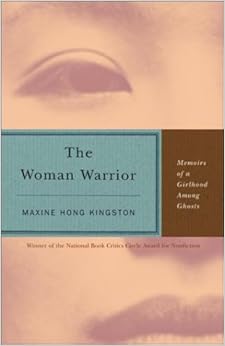
The Woman Warrior: Memoirs of a Girlhood Among Ghosts
and over one million other books are available for Amazon Kindle. Learn more


Flip to back
Flip to front

The Woman Warrior: Memoirs of a Girlhood Among Ghosts Paperback – April 23, 1989
See all 11 formats and editions
Hide other formats and editions
| Amazon Price | New from | Used from |
|
School & Library Binding
"Please retry"
|
$21.15 | $4.96 |

$8.65
FREE Shipping on orders over $35.
In Stock.
Ships from and sold by Amazon.com.
Gift-wrap available.
NO_CONTENT_IN_FEATURE
Start reading The Woman Warrior on your Kindle in under a minute.
Don't have a Kindle? Get your Kindle here, or download a FREE Kindle Reading App.
Don't have a Kindle? Get your Kindle here, or download a FREE Kindle Reading App.
Browse in Books with Buzz and explore more details on selected titles, including the current pick, "Neil Patrick Harris: Choose Your Own Adventure," an engaging, interactive dive into the versatile actor's life (available in hardcover and Kindle book).
Product Details
Would you like to update product info or give feedback on images?.
|
Editorial Reviews
Amazon.com Review
The Woman Warrior is a pungent, bitter, but beautifully written memoir of growing up Chinese American in Stockton, California. Maxine Hong Kingston (China Men) distills the dire lessons of her mother's mesmerizing "talk-story" tales of a China where girls are worthless, tradition is exalted and only a strong, wily woman can scratch her way upward. The author's America is a landscape of confounding white "ghosts"--the policeman ghost, the social worker ghost--with equally rigid, but very different rules. Like the woman warrior of the title, Kingston carries the crimes against her family carved into her back by her parents in testimony to and defiance of the pain.
--This text refers to the
Hardcover
edition.
Review
Maxine Hong Kingston grew up in two worlds. There was "solid America," the place her parents emigrated to, and the China of her mother's "talk-stories." In talk-stories women were warriors and her mother was still a doctor in China who could cure the sick and scare away ghosts, not a harried and frustrated woman running a stifling laundromat in California. But what is story and what is truth? In China, a ghost is a supernatural being; in America it is anyone who is not Chinese. In addition, underlying even the most exciting talk-stories of Chinese women warriors is the real oppression of Chinese women: "There is a Chinese word for the female 'I' - which is 'slave.' " In an attempt to figure out her world, Maxine Hong Kingston finds herself creating stories of her own, filling in the blanks her mother has not told her because her daughter is, after all, not true Chinese and thus cannot be completely trusted. Can these new stories explain why she had trouble speaking in the American schools? Can they help her understand the aunt who committed adultery and whose existence is denied? The new stories refuse to fall into traditional forms, and the realizations that come from them often bring out a beautiful, passionate anger that practically burns through the pages. This is powerful, experimental writing, a combination of love, hate, frustration, and sheer beauty. -- For great reviews of books for girls, check out Let's Hear It for the Girls: 375 Great Books for Readers 2-14. -- From 500 Great Books by Women; review by Erica Bauermeister
More About the Author
Discover books, learn about writers, read author blogs, and more.
Customer Reviews
Most Helpful Customer Reviews
106 of 114 people found the following review helpful
By
Hee Jung Park (Colegio Maya)
on March 28, 2000
Format: Paperback
3 Comments
Sending feedback...
The Woman Warrior, by Maxine Hong Kingston, captures readers with her own interpretation of what it was like to grow up as a female Chinese American. As a little girl, she came to America with her family. Despite being in a new country, she had to deal with the old traditions from her homeland. Kingston hears different legends which she pieces together to create her woman warrior. It becomes her source of strength in a society that rejected both her sex as well as her race. The book, divided into five interwoven stories, is at times confusing as it jumps around. Nevertheless she does a great job explaining her life while growing up. The first story, called "No Name Woman," tells of her paternal aunt who bears a child out of wedlock and is harried by the villagers and by her family into drowning herself. The family now punishes this taboo-breaker by never speaking about her and by denying her name. However, Kingston breaks the family silence by writing about this rebel whom she calls "my forebear." The next story is called "White Tigers." It is a myth about a heroine named Fa Mu Lan, who fights in place of her father and saves her village. This story became the Disney movie, Mulan. "Sharman" is a story of Kingston's mother. It explores what it was like to study as a woman to become a doctor in China. "At the Western Palace" is about Kingston's aunt who comes to America and discovers that her husband has remarried in America. Finally, the last story, "A Song for a Barbarian Reed Pipe" is about Kingston's own experience in America when she first arrived. She explains what it was like to be a newcomer in a strange culture.Read more ›
Thank you for your feedback.
If this review is inappropriate, please let us know.
Sorry, we failed to record your vote. Please try again
65 of 70 people found the following review helpful
By
Yaumo Gaucho
on May 6, 2000
Format: Paperback
1 Comment
Sending feedback...
This is a remarkably intelligent, personal account of success, failure, frustration, and identity. No, the writing and structure are not straightforward, and yes, some of the plotline may be disturbing. But this is ultimately an intellectually rewarding read, and a personally emotionally moving experience.
The anti-feminist backlash this novel seems to elicit (e.g., on this review page) should be testimony to how provocative it is, and how many assumptions it can challenge.
As for it being a misrepresentation of Chinese culture, well, it's a subjective account. It's the culture through Maxine's eyes (and her family's eyes); it is not meant to be an objective anthropological study. And I did not find it at all exoticizing. In fact, it's a shame that MHK often gets mentioned in the same sentence as Amy Tan -- beyond the superficial similarity of both being Asian-American women, they have little in common. MHK does none of the silly exoticization that AT does, and at least to me, does not engage in the "Asians must be rescued by Western culture" ideology of AT. This is ultimately a personal, autobiographical account, that is neither judgmental nor self-pitying.
The anti-feminist backlash this novel seems to elicit (e.g., on this review page) should be testimony to how provocative it is, and how many assumptions it can challenge.
As for it being a misrepresentation of Chinese culture, well, it's a subjective account. It's the culture through Maxine's eyes (and her family's eyes); it is not meant to be an objective anthropological study. And I did not find it at all exoticizing. In fact, it's a shame that MHK often gets mentioned in the same sentence as Amy Tan -- beyond the superficial similarity of both being Asian-American women, they have little in common. MHK does none of the silly exoticization that AT does, and at least to me, does not engage in the "Asians must be rescued by Western culture" ideology of AT. This is ultimately a personal, autobiographical account, that is neither judgmental nor self-pitying.
Thank you for your feedback.
If this review is inappropriate, please let us know.
Sorry, we failed to record your vote. Please try again
46 of 51 people found the following review helpful
By
Peggy Vincent
on November 16, 2003
Format: Paperback
1 Comment
Sending feedback...
I didn't know beans about Chinese women when a friend put this book into my hands about 20+ years ago. Talk about a revelation. The Woman Warrior preceded Amy Tan's novels by at least a decade and went on to win several awards. It's about growing up Chinese American in California's Central Valley, working in the family laundry, and having to listen to her mother's stories that were designed to scare her into "good behavior." Some of these "talk stories" depicted women as fierce and strong warriors, while at the same time they were enslaved by their culture.
This memoir is intense, mystical, introspective, and full of marvelous and unexpected twists and turns. If you haven't yet read it, now's your chance.
This memoir is intense, mystical, introspective, and full of marvelous and unexpected twists and turns. If you haven't yet read it, now's your chance.
Thank you for your feedback.
If this review is inappropriate, please let us know.
Sorry, we failed to record your vote. Please try again
16 of 17 people found the following review helpful
By
Melissa Lustig
on November 23, 2000
Format: Paperback
Comment
Sending feedback...
In the novel, The Woman Warrior, Kingston addresses several themes including the relationship of boys vs. girls in the Chinese culture, the process of naming, a warrior spirit within women, ghosts as representative of people, the symbolism of talk-stories, and the significance of a voice for speaking as well as writing. While Kingston explores these various themes, she also incorporates her own memoir and testimony. As a Chinese-American, she reveals the complex duality of an identity shaped by two cultures. As a woman, she reveals her fears and struggle to maintain her freedom, along with her desire to earn love from her Mother. As a writer, she reveals a voice she constantly silenced during her youth -- a voice which empowers not only her own identity through writing, but also acknowledges the identity and existence of an aunt who dared to be an individual.
Language provides Kingston an avenue into rebellion and strength and yet at the same time, through her language, she inevitably separates herself from her traditions and heritage. Throughout her memoir, Kingston struggles to assert her own identity and liberate her voice. "I shut my mouth, but I felt something alive tearing at my throat, bite by bite, from the inside" (200). This soreness within her throat grows with time along with the need to not only release her identity, but furthermore, to share this identity with her mother. "Maybe because I was the one with the tongue cut loose, I had grown inside me a list of over two hundred things that I had to tell my mother so that she would know the true things about me and to stop the pain in my throat" (197). Kingston needs her mother to help release the language inside her.Read more ›
Language provides Kingston an avenue into rebellion and strength and yet at the same time, through her language, she inevitably separates herself from her traditions and heritage. Throughout her memoir, Kingston struggles to assert her own identity and liberate her voice. "I shut my mouth, but I felt something alive tearing at my throat, bite by bite, from the inside" (200). This soreness within her throat grows with time along with the need to not only release her identity, but furthermore, to share this identity with her mother. "Maybe because I was the one with the tongue cut loose, I had grown inside me a list of over two hundred things that I had to tell my mother so that she would know the true things about me and to stop the pain in my throat" (197). Kingston needs her mother to help release the language inside her.Read more ›
Thank you for your feedback.
If this review is inappropriate, please let us know.
Sorry, we failed to record your vote. Please try again
